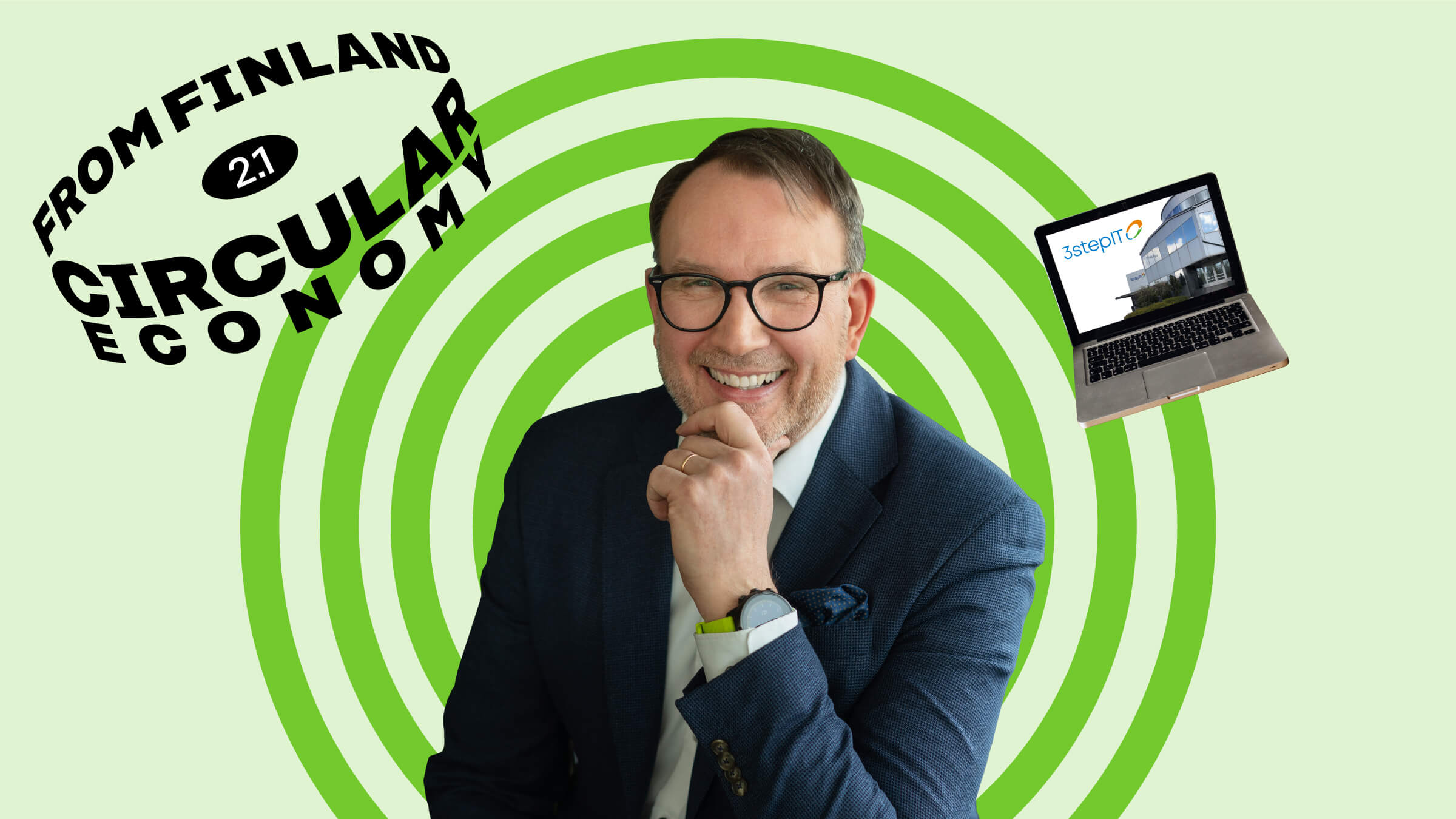“3stepIT provides IT devices to businesses and the public sector. As our name suggests, we are involved in the three steps of a device’s life cycle: helping customers find the right device, monitoring its use and ultimately ensuring the reuse of the device once the customer no longer needs it.
The idea for 3stepIT dates back to the late 1990s, a time when more and more people started to have computers and mobile phones. Our founders noticed that devices often change ownership, but their use is not monitored and they are not systematically leased. As a result, they decided to set up their own business.
Today, our company manages around two million devices, of which just over half a million are returned from customers to us every year. We clean and service the devices and clear their memory. Up to 98 per cent of these devices will end up with a new owner after our processing, and the remaining 2 per cent will be recycled and recovered as raw material.
The manufacturing of phones, computers and tablets consumes natural resources. This makes it important to ensure that a device’s life cycle is as long as possible. The monitoring and reuse of devices reduces their carbon footprint by 40 per cent. This also reduces the number of necessary devices and the amount of generated electronic waste.
Our next goal is to expand to Europe with a joint venture we have established with the French bank, BNP Paribas. The coronavirus pandemic has accelerated the opportunity to gain a foothold in new areas in Europe, as companies in different countries have needed portable devices quickly to enable their employees to work remotely.
I have been working in IT for a long time in Finland and around the world, including in Silicon Valley in California. A year and a half ago, I was attracted to 3stepIT by the company’s operating model and its potential for reducing the environmental footprint of electronics. I believe that that our generation is responsible for changing its consumption habits and for ensuring that our planet will still be liveable in the future.
The demand for procuring laptops and devices responsibly is growing. Finland and the EU are planning legislation that will lead companies towards a circular economy. Yet, there is still work to be done. It would be good if more consideration were given to the environmental impacts of procurements in the competitive tendering processes in the public sector.”










Suosittelemme
Vielä yksi